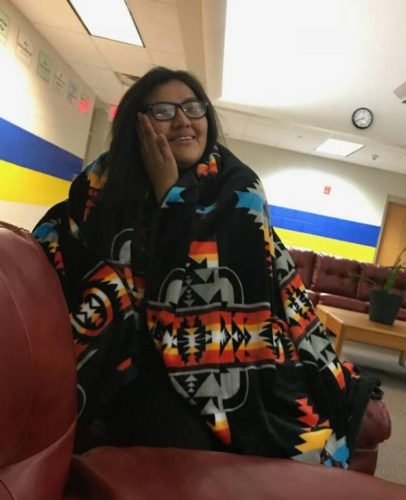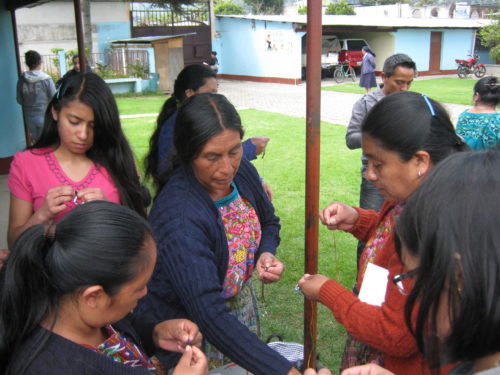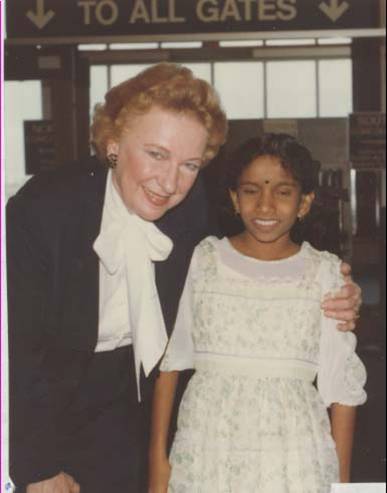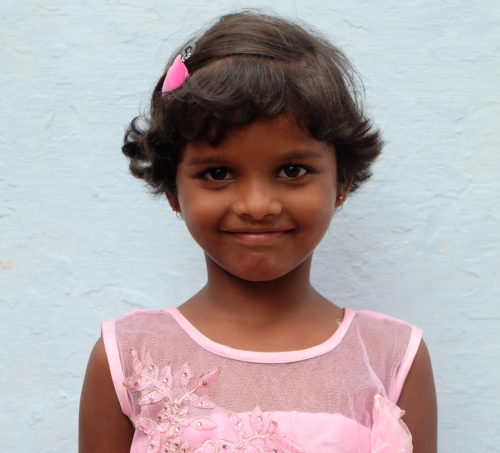In August of 2005, Hurricane Katrina struck New Orleans, with damaging winds reaching 127 miles per hour; but it was when the protective levees failed and were breached that billions of gallons of water poured into the city. New Orleans is shaped geographically like a bowl; the land closest to Lake Pontchartrain and the Mississippi River is higher, and the land in the middle of the city is much lower.
Epic catastrophe occurred as a result of the hurricane, as these waters became a toxic stew of sewage, chemicals, and decay. People developed blisters and rashes from wading in the water; many were stranded in their homes. Others trudged through the foul water to higher ground, making their slow and painful way to the Superdome, which was ill-equipped to help the number of people seeking refuge.
People were eventually evacuated to cities and towns across America. No schools were open during the 2005 to 2006 school year in New Orleans. Aside from a lack of children to educate, the buildings themselves were too badly contaminated and damaged to use. Katrina’s evacuees created a diaspora; victims filed for assistance from the Federal Emergency Management Agency (FEMA) in every state in the country. Some chose places to flee based on having family or friends in the area; others were sent by FEMA to places unknown to them.
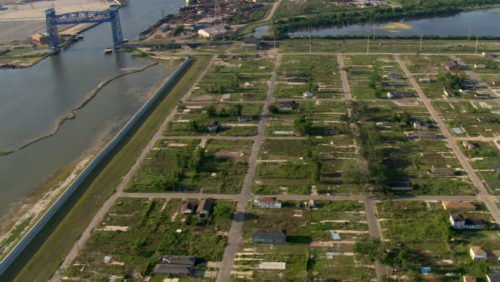
An ariel view of New Orleans after Hurricane Katrina.
Just one year after Katrina hit, about 53 percent of city residents had returned to New Orleans – but less than one-third were back in their pre-hurricane homes. These families faced serious barriers, such as a lack of affordable rental housing. This was especially true because the four largest public housing projects were so badly damaged that the city decided to demolish them. The goal was to build mixed-income housing, but that was very slow in coming. While tracking those who were New Orleans residents at the time of Hurricane Katrina’s strike has been spotty and incomplete, it is known that the poorest sections of the city have not regained their former populations.
Challenges for New Orleans
New Orleans has a rich culture and history; its Mardi Gras celebrations are famous. There is a well-known annual Jazz and Heritage Festival each spring that draws music lovers from all over the world, and there are brass band parades every autumn. The city’s beloved cuisine makes instant fans. New Orleans is burdened by poverty, however, as well as a lack of affordable housing and high rents, crime, and political corruption.
After Hurricane Katrina, there was a host of good people who wanted to create charter schools in New Orleans. Many were established, but some folks found the administration of those schools to be more difficult than they had anticipated. If students did not achieve as quickly as state officials felt they should, schools’ charters could be revoked.
At the same time, the city created an “open border” policy: parents had the choice to send their children to any city school they wished, regardless of what neighborhoods or districts they resided in. This led to competition for students, and also to some financial inefficiencies. For example, some school buses crossed the entire city in a web of transportation; a student could potentially attend a school all the way across the city, passing by two that were closer to his or her home. So costs became higher, which meant less money for other needs.
Many people are familiar with the Lower Ninth Ward, which suffered the greatest destruction during the hurricane, and is making the slowest recovery.
Over the last ten years, many former residents have returned to New Orleans. There has also been an influx of new residents arriving to work in construction and rebuilding efforts. The city, with federal grants, initiated a 1.8 billion dollar school reconstruction plan after the hurricane. This has improved the conditions in which the children learn; but it can also feel like things remain unresolved, as students are moved to accommodate renovations, or are moved to new campuses. The real estate market is tight and expensive. There is a budding technology industry and a booming restaurant scene. The recovery has left many still without the resources to rebuild their lives, though.
New Orleans is ranked as the third most unequal city in the United States based on the income gap, according to a Bloomberg analysis. The economy is adding low-wage jobs much faster than higher-paying ones that could help build a stronger middle class. The poverty rate in the city is 27 percent, which is twice the national rate. Some of the challenges related to government and organization. The city is divided into thirteen planning districts that encompass 72 distinct neighborhoods, most with their own neighborhood organizations. Previously, there were seventeen wards that had been in place since the 1800s, and many people still think of themselves as residents of a certain ward.
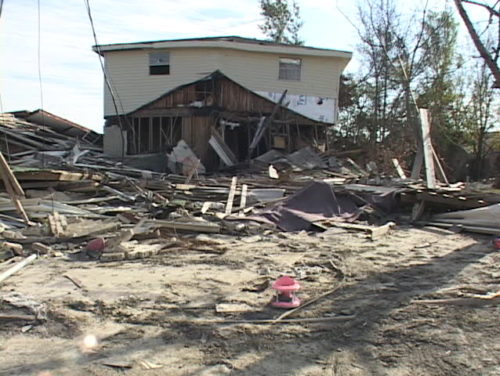
Many people are familiar with the Lower Ninth Ward, which suffered the greatest destruction during the hurricane, and is making the slowest recovery. Nineteen areas are registered as historic places, fourteen of them designated as Historic District Landmarks. There are also seven municipal districts and eight police districts. Understandably, many families experience confusion over where to turn for services, or to ask for help with landlord or other problems.
Two years before Hurricane Katrina, New Orleans’ schools’ performance had become so poor that the State of Louisiana took over the city’s schools, establishing the Recovery School District (RSD). Its mission was — and still is — to turn around low-performing schools. Just before the hurricane, five failing schools became charter schools overseen by the RSD; and after the hurricane, more than 100 schools became part of the RSD — with a total number of 57 becoming charter schools.
At the same time, there is a small but significant number of private schools – and still some parochial schools. There is a belief in the city that there is an almost unbridgeable gap between the poorer students that attend the charter and public schools, and the more well-to-do students that attend the private and parochial schools.
The anniversary of our partnership
In early 2007, Ronald Carter, our President and Chief Executive Officer, who at the time was our Urban Division Director, reached out to organizations that were already in New Orleans doing good work – but who needed more financial help in order to care for the children.
Mr. Carter spoke with Sara Massey, the President of Communities In Schools (CIS) of Greater New Orleans at the time, and a partnership was established. CIS of Greater New Orleans, whose mission is to work directly in 2,300 schools in 25 states and in the District of Columbia to build relationships that empower students to stay in school and succeed in life, has goals and objectives that are complementary to ours here at Children Incorporated. This school year marks the tenth anniversary of our partnership with CIS of Greater New Orleans, where we are able to help sponsored and unsponsored children get the support they need through our sponsorship program and our Hope In Action Fund.
***
HOW DO I SPONSOR A CHILD IN New ORLEANS?
You can sponsor a child in New Orleans in one of two ways: call our office at 1-800-538-5381 and speak with one of our staff members, or email us at sponsorship@children-inc.org.
SPONSOR A CHILD
